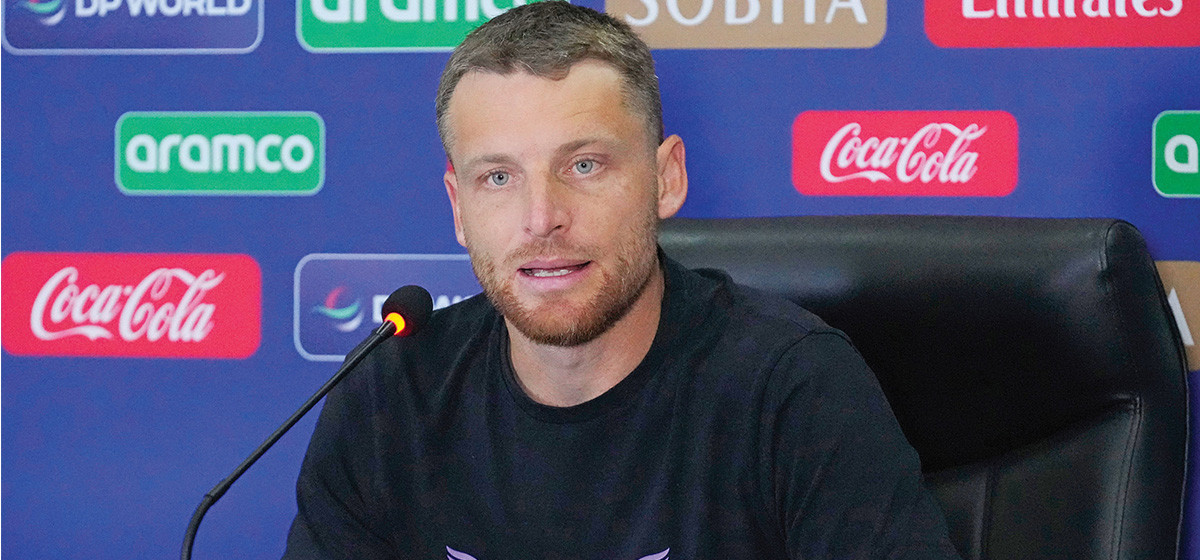KATHMANDU, March 26: Three prominent international human rights organizations have expressed serious concerns over the bill tabled in the parliament to bring amendment to Nepal’s transitional justice legislations.
The Amnesty International, Human Rights Watch and the International Commission of Jurists in a joint statement on Friday said that the bill does not fully meet the country’s domestic law or international legal obligations and will not provide justice to the victims if adopted in its current form.
This comes in the wake of the government presenting the Bill for Amendment to the Investigation of Enforced Disappeared Persons, Truth and Reconciliation Commission Act (2014), widely referred to as the transitional justice bill, in parliament on March 19.
The three global human rights watchdogs have maintained that the bill, if adopted in the current form, will not adequately provide for the effective prosecution of serious crimes under international law. Moreover, the government has failed to adequately consult the conflict victims about the content of the draft legislation, seriously undermining the credibility of its current approach.
“The bill should not be adopted in its current form; instead, it should be revised to comply with Nepal’s Supreme Court rulings and international human rights laws and standards. In addition, the revision process should ensure adequate consultation with the conflict victims about the content of the proposed legislation,” they said in the joint statement.
“Key provisions of this bill appear to be designed to shield the alleged perpetrators from prosecution for some of the most serious crimes under international law,” the statement quotes Dinushika Dissanayake, Amnesty International’s deputy regional director for South Asia, as saying. “If it is rushed through parliament without significant changes, it cannot be the basis for a process that has the support of conflict victims, nor legal credibility at home or abroad.”
Conflict victims urge parliament to revise Transitional Justice...

The latest draft, presented to parliament by the recently elected coalition government headed by the Maoist leader Pushpa Kamal Dahal, fails to address most of the concerns already identified in July 2022 by the victims’ groups, lawmakers and human rights experts with an earlier version of the bill. At that time, a parliamentary committee had begun work on necessary changes, but parliament was dissolved before the legislative proposals came to a vote ahead of elections that were held last November. Despite this, the government, which includes the Nepali Congress party as a major coalition partner, reportedly plans to adopt the current draft without amendments through an “expedited” process, according to the press statement.
Both the Maoist armed group and government security forces committed serious human rights violations and violations of international humanitarian laws amounting to crimes under international law during the armed conflict in Nepal from 1996 to 2006. The Comprehensive Peace Agreement that ended the war included a commitment to set up a truth and reconciliation commission “to investigate [the] truth about people seriously violating human rights and involved in crimes against humanity.” However, successive governments, which have been led in turn by all the major political parties, have blocked efforts to seek truth and ensure justice.
According to the statement, some aspects of the current bill can be the basis for progress, which is long overdue and desperately needed, the groups said. For example, the bill guarantees the right to reparation and interim relief for some victims who were left out of the earlier relief packages. It also guarantees the right of the families of “disappeared” persons to their relative’s property. The bill also mandates Nepal’s Truth and Reconciliation Commission to study the root causes and impact of the conflict and recommend institutional reforms.
However, if adopted as currently formulated, the bill would allow many people allegedly responsible for abuses amounting to crimes under international law to evade justice. It would result in the Nepali justice system continuing to abandon many victims and survivors, some of whom have waited two decades for truth and redress. There have been almost no successful prosecutions of serious crimes under international law since the conflict ended in 2006.
The Supreme Court in 2015 struck down a number of sections of the 2014 law establishing Nepal’s Truth and Reconciliation Commission (TRC) and the Commission of Investigation on Enforced Disappeared Persons (CIEDP), in particular because they were empowered to grant amnesties to perpetrators of serious crimes under international law.
Under the latest proposals, the two commissions would investigate crimes committed during the conflict and “serious violations of human rights” would be prosecuted in a special court. However, the definition of “serious violations of human rights” – which includes rape, enforced disappearance, “cruel or inhuman torture,” and “killing of somebody after cruel torture or killing of somebody in a brutal manner” – excludes numerous crimes under international law that must not be subject to amnesty. The bill in its current form provides amnesties for “murder”; “sexual violence” not amounting to rape; “beating and mutilation”; “abduction”; “arson”; “forced displacement”; “illegal detention”; and “any inhuman act[s] that are against international human rights and humanitarian law.”
As a result, perpetrators of certain serious human rights violations and violations of international humanitarian laws amounting to crimes against humanity or war crimes, including arbitrary killings by government forces, would enjoy an amnesty from prosecution, according to the statement.
The three global human rights watchdogs have said that the currently formulated bill gives rise to other serious human rights concerns, including failure to establish a special investigation unit to collect evidence. They have maintained that the bill fails to clarify how the principle of non-retroactivity of criminal law would apply in a manner consistent with international law. International law require the prosecution of certain serious crimes, such as torture and enforced disappearance, if warranted by evidence, irrespective of whether they were crimes under domestic law when they were committed.
The bill, according to them, also fails to clarify which ‘applicable law’ would be used to prosecute those involved in serious crimes. The Penal Code, which came into force in 2018, prevents retroactive applicability of its provisions. Moreover, the Penal Code includes statutory limitations for the crimes of rape, torture and enforced disappearances. Furthermore, it empowers the government to appoint judges at the special court “in consultation with the Judicial Council,” instead through the independent process required by Nepal’s Constitution.
“Once again, Nepal’s political leaders are attempting to legislate an escape hatch for some of those responsible for serious crimes under the international law,” said Meenakshi Ganguly, South Asia director at Human Rights Watch. “After over 16 years of trying and failing with this strategy, it should be clear to them that only a credible and legitimate justice process will successfully complete the peace process.”
Nepal’s two transitional justice commissions, which were established in 2015, have received over 60,000 complaints concerning human rights violations and violations of international humanitarian law but have failed to complete a single investigation. If the present bill is adopted as currently formulated, the two commissions will have just two more years to complete their work, including collecting evidence of “serious violations of human rights” that must be tried in the special court.
In 2014, the United Nations (UN) published a “Technical Note” describing how Nepal’s legislation on accountability for conflict-era crimes does not comply with international legal standards, in particular, due to amnesty provisions, as a result of which the UN could not support it. For the same reasons, foreign governments have not engaged with the two commissions. The new bill fails to address the serious problems identified by the UN in 2014.
The UN and Nepal’s diplomatic partners should make it clear that only a process that meets international legal standards can receive international support and recognition, and insist on justice for serious crimes under international law so that victims have the opportunity to see perpetrators held accountable, the groups said.
The long delay in providing justice for conflict era violations has helped to entrench impunity and, therefore, undermine the rule of law in Nepal. More than 140 victims, including families of people subject to enforced disappearances and extrajudicial killings, have sought justice through the regular court system, but progress has been blocked because successive governments have argued that all conflict-era cases should be handled in accordance with the transitional justice law.
Until a credible justice process for conflict-era crimes is established, Nepal’s existing justice system should ensure access to effective remedies and reparations for victims, the groups said. As domestic avenues to justice continue to be blocked, prosecutors in other countries should investigate and seek to prosecute international crimes committed in Nepal under the principle of universal jurisdiction, the joint statement added.
The serious flaws in the proposed legislation mean that if it is passed as it currently stands it is unlikely to be accepted by the victims, by Nepal’s Supreme Court, or by domestic or international civil society human rights organizations. On 15th March, 42 conflict victims’ organizations issued a joint statement condemning the bill as a betrayal of conflict victims and a denial of their right to justice.
“The victims of egregious human rights abuses during Nepal’s armed conflict have waited far too long for truth, reparations and justice,” said Mandira Sharma, senior international legal adviser to the ICJ. “The government of Prime Minister Pushpa Kamal Dahal and other political parties in parliament should recognize that and pass the legislation only after revising the bill to meet the victims’ needs and ensure respect of Nepal’s international and domestic legal obligations.”




































